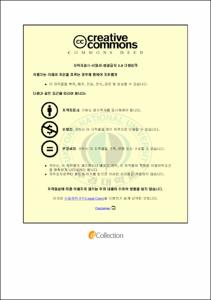9.11 테러와 미국 이민정책의 변화에 대한 연구
- Alternative Title
- A Study on the 9.11 Terror and the Changes in Immigration Policy of the U.S.
- Abstract
- Abstract
The purpose of this study is to clarify the attitude to the changes in foreign relationship and direction of policies of the USA displayed in their immigration policies before and after 9.11 and the conflictive elements in domestic and foreign affairs. After the Illegal Immigration Reform and Immigrant Responsibility (Act of 1996), the bills of Clinton’s administration, the bills that were not enacted though they were passed in council, McCain-Kennedy Bill, Sensenbrenner Bill, Kennedy Kill Bill and the USA Patriot Act which was legislated in October 2001 have one thing in common in that all of them are regulation oriented policies.
However, unlikely those bills have common point in ‘regulation’, the goals of immigration policies before and after 9.11 are totally different. The USA, organized by immigrants, has been continuously repeated accepting or controlling policies of immigration depending on their political or economic needs. As for the immigration policies before 9.11, important concerns were mostly domestic issues such as problems of illegal immigrants, conflicts among ethnic groups, problems of welfare provision, the illicit drug traffic among immigrants and border line security due to the illegal immigrants, and those were the determinants for the direction of immigration policies before. On the other hand, the political discourse after 9.11 were important issues that threaten the safety of nation thus micro issues were ousted from the concerns to be discussed and such atmosphere enabled legislation of USA Patriot.
After Cold War, the USA gained hegemonic power. As mentioned in the theory, “Every country seeks for their own sake, and in this sense, they can be only unilateralism.”, in the background of the ‘own sake’, there is the hegemonic power of the USA. The hegemonic power in international relationship means authority and thus they can only seek for their national security to secure protect their own sake. Therefore, the conversion of concerning issues from economic profit to national security was their countermeasure to terrorism based on their hegemonic power.
As mentioned above, the foreign relationship and diplomatic policies of the USA are based on their own sake. The fact that the USA drives such unilateralism is consistent with the American exceptionalism spirit that they have kept on since after establishment of the USA, and their spiritual tradition is originated from the idea giving priority on their value. In other words, when the value of self is considered to be prior to any other, unilateralism diplomatic policy in foreign relationship gains a political validity. Thus this study focused on the fact that the USA who already has hegemonic power in international relationship enacted ‘USA Patriot Act’ including immigration policies as a countermeasure to the threatening from foreign power.
Such radical countermeasure, enactment of new act, toward terrorism displays the conflicts among the immigrants groups and at the same time provides ideological battlefield in the global society. Also, it was a very rare case in democracy that the U.S. government omitted partial process and legislation process for fast enactment of new act. The reason for such special case of legislation implies that, for the USA, the hegemonic nation, 9.11 was a shocking event that no one could expect and it alerted other countries to international terrorism as well.
- Issued Date
- 2012
- Awarded Date
- 2012. 2
- Type
- Dissertation
- Keyword
- 9.11 테러 이민정책의 변화 미국 애국법 상정된 법안 이민정책의 갈등 요소
- Publisher
- 부경대학교 국제대학원
- Alternative Author(s)
- Cheon, jin Suk
- Affiliation
- 부산지방우정청
- Department
- 국제대학원 미국학과
- Advisor
- 이홍종
- Table Of Contents
- Ⅰ.서론 1
1.문제제기. 1
2.연구현황. 6
3.연구방법 및 논문구성. 14
Ⅱ.20세기 이민정책의 변화. 19
1.1965년 이민정책의 변화. 19
2.20세기 후반 이민정책의 기조. 25
1)인종적 규제. 26
2)양적 규제. 29
3)사전 검열제. 37
3.주정부와 연방정부의 관계. 43
4.이민관할권 이양문제. 47
Ⅲ.9.11사태와 새 이민정책의 쟁점. 50
1.애국법 제정. 55
1)Title Ⅳ.국경보호(외국인 입국제한). 56
2)Title Ⅳ.국경보호(학생 감시프로그램). 57
2.정부조직의 개편과 신설. 58
3.연방정부에 상정된 법안. 60
1)매케인케네디 법안. 60
2)센센 브레너 법안. 61
3)케네디킬 법안. 62
4.이민정책의 쟁점과 갈등. 63
1)불법이주민 문제. 63
2)이민정책의 쟁점. 72
3)양극화로 진행되는 이민정책. 75
4)이민집단의 갈등. 80
Ⅵ.결 론 84
참고 문헌 91
- Degree
- Master
- Files in This Item:
-
-
Download
 9.11 테러와 미국 이민정책의 변화에 대한 연구.pdf
기타 데이터 / 1.54 MB / Adobe PDF
9.11 테러와 미국 이민정책의 변화에 대한 연구.pdf
기타 데이터 / 1.54 MB / Adobe PDF
-
Items in Repository are protected by copyright, with all rights reserved, unless otherwise indicated.